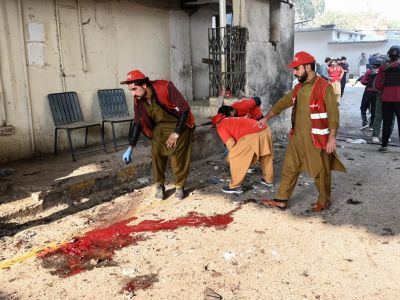The Pakistani military regime will lift an existing ban on political rallies 90 days before general elections due in October next year, a government spokesman said Sunday.
"We will lift the ban 90 days before the holding of elections," President Pervez Musharraf's spokesman, Major-General Rashid Qureshi, told AFP.
Musharraf unveiled his long-awaited "roadmap" for Pakistan's return to democracy on Tuesday, the anniversary of the country's independence from Britain.
The army chief, who came to power in the October 12, 1999 military coup, promised to hold parliamentary polls between October 1 and 11, 2002.
At the time, he made no mention of when, or if, the government would allow outdoor public meetings and political rallies, banned after the coup which toppled former prime minister Nawaz Sharif.
Qureshi said general elections would be held on a party-basis and there would be no restrictions on public meetings or rallies.
He appealed for a peaceful campaigning period and urged political parties to remain within the law.
Preparations for elections would begin in September and culminate in June 2002, while the new federal and provincial governments would take over in October and November 2002, he said.
Musharraf, who has been under international pressure to announce an election date, has said necessary amendments would be made to the country's constitution before elections.
The announcement aroused suspicion among politicians about the role of the military in the new parliamentary set-up.
Comments in some newspapers said the supremacy of parliament might be compromised if the military's National Security Council, which has overseen the cabinet since the coup, was given a supervisory role.
The government has already held local council elections on a non-party basis. However Qureshi said "the government has no intention to keep the parties out of parliamentary elections."
"Anyone can participate in the elections, except those barred under election rules" he said referring to Sharif and another former prime minister Benazir Bhutto.
Both Bhutto and Sharif, twice elected and twice dismissed, have been discredited by widespread allegations of corruption and both now live in exile.
"Both these people, who are facing charges of corruption and loot would be debarred from contesting the polls under the elections rules," he said.
"If they are convicted, there is little we can do about it."
But he said Sharif and Bhutto were free to contact the court if they wanted to contest the elections. The law will take its own course and "we will abide by the law," he said.
Musharraf has vowed that neither will be allowed to return to power as long as he has any say over the country's political system -- KARACHI (AFP)
© 2001 Al Bawaba (www.albawaba.com)









